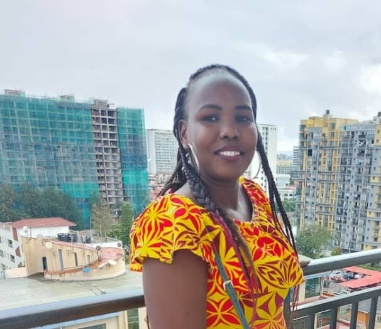By Esther Lohutuhureng
Water is an indispensable part of our daily lives. Every creature on planet Earth needs water, starting with human beings, plants, and animals. Water is one of our basic needs, and without it, there is no life. Moreover, it is written in Quran Alkreem, “And we created from water every living thing.” Access to clean water is one of the most pressing human rights issues. It is the government’s responsibility to provide its citizens with safe and clean water. However, the South Sudan government seems to not understand that access to clean water is not a privilege but a human right. Besides, our country is blessed with the Nile, which has fresh water for drinking and other domestic activities.
Water is one of the crucial resources that is significant for our existence, and without it, we cannot exist. Due to the high price of clean water in Juba County, it is very difficult for families to carry out daily household activities such as washing fruits and vegetables, cooking, and washing clothes, among others.
Many civil servants have not received their salaries for months, and if they receive their salaries on time, it cannot meet the basic needs of their family. As the majority of families are trying to figure out how to cope with the current financial stress, another impediment to water appears. Therefore, the personal hygiene of the citizen is somewhat challenging without affordable water prices.
Sincerely speaking, even if a barrel of water costs 800 SSP, getting that money on a daily basis is not easy. Though it is fairer than the prices that water tanker operators are charging, which are 1,300 SSP to 1,500 SSP per barrel, to make matters worse, the salaries may not be in range with the basic needs’ expectations because the salaries of a number of civil servants run from 5000 to 9000 per month, and sometimes they stay for more than three months without salaries.
Other countries are going forward, and for us, we are going backward. Some years ago, several areas in Capital Juba had water taps. By now, water taps should have reached other new residential areas. The opposite is true; the previous areas, which had water taps before, are now cut off from them. In areas such as Kuwait’s residential area, Hai Cinema, parts of Munuki, etc., right now they don’t have water taps at homes, yet they did before.
The UN Declaration of Human Rights states that everyone has the right to life, security, and a healthy human environment. But these rights are hardly recognized by the government. Is it that they don’t know it, or maybe they are comfortable with people’s suffering? Or they feel powerful when its citizens are in desperate need of basic needs.
Discrimination falls on women when it comes to shortages of water. In most communities and societies, women and girls are responsible for fetching water from rivers (water point taps), boreholes, and wells, among others. Such water points are sometimes very far from home, and very often they have to walk long distances and wait for long hours to just get one jerry can of water or 20 liters of water. Those who are schoolgirls are likely not performing well in school in regard to the hours they spend fetching water instead of concentrating on education. Therefore, it will affect their education as well as their future.
However, high water prices are also increasing gender-based violence (GBV). Like a certain husband who quarreled with his wife, it all started when the husband found out that there was no water for him to take a shower after a long day at work. Nevertheless, in the same family, the wife also shouted at her children when they used the little water for washing school uniforms. The woman said that she was saving that water for her husband to take a shower.
However, when it comes to skyrocketing water prices, not everyone is affected because some families can still afford to buy it, especially those with water tanks at home. They call the drivers of the water tanks to reach them at their places. Besides, those drivers cooperate with people who have big water tanks, and they disguise those who have one water barrel. Conversely, poor families are more vulnerable than rich families. While others buy clean drinking water from shops or from Water Companies. The majority want water, whether it is clean or not, whether it is filtered or not, and yet they don’t get it.
The National Ministry of Water Resources and Irrigation and the Central Equatoria Government should continue monitoring water tanker operators in order to make sure that they adhere to the decision of the National Ministry of Water Resources and Irrigation.
The national ministry of water resources and irrigation, together with CEG, should connect water pipes all over the residential areas in Central Equatoria and later to the other states plus three administrative areas as well. In doing so, society will be free from water-borne diseases, including cholera. Not to mention that women and girls will be safe from sexual harassment; it only needs good will from the ministry of water resources and irrigation.
The writer can be reached via Tel: 0921492857; Email: Esther090119@gmail.com




